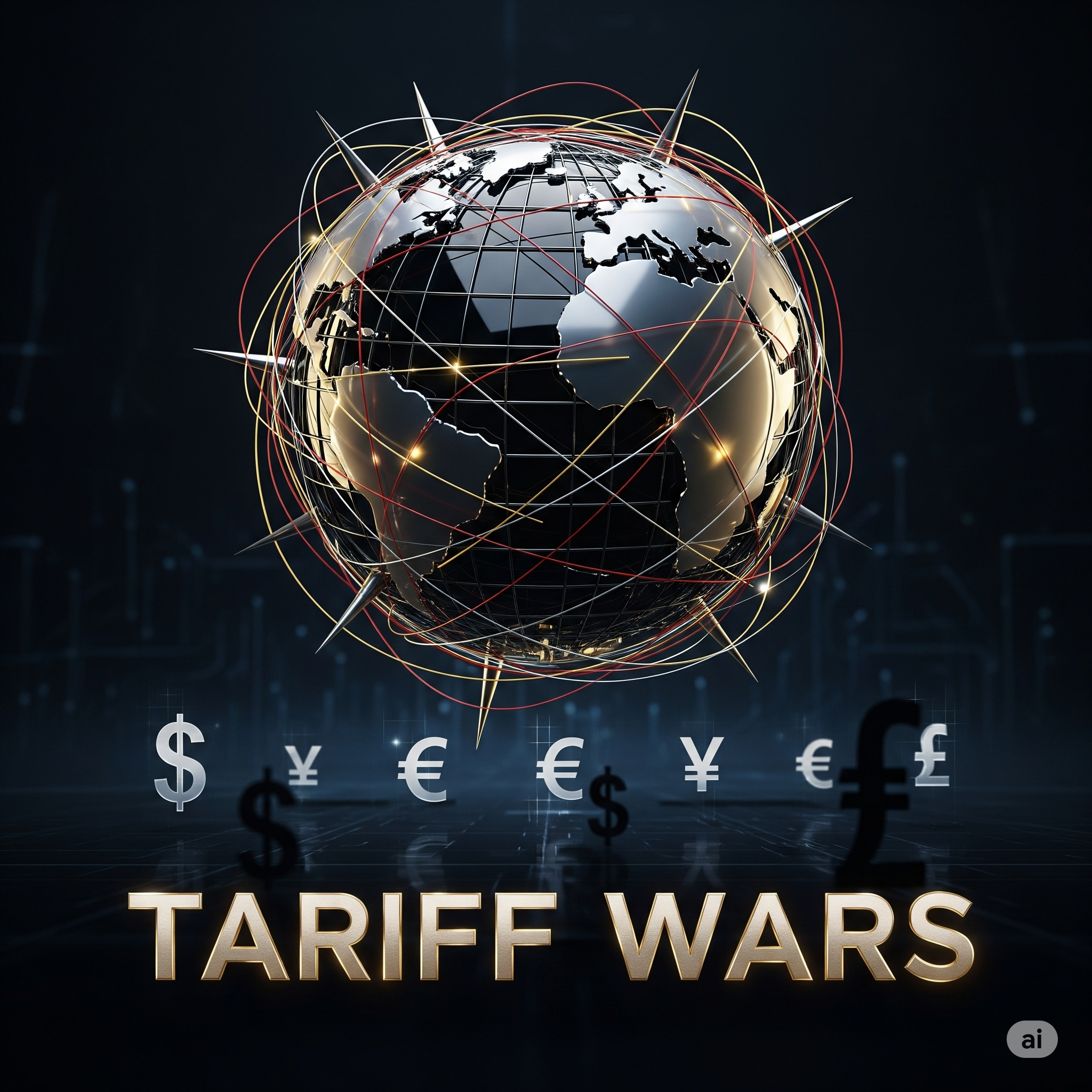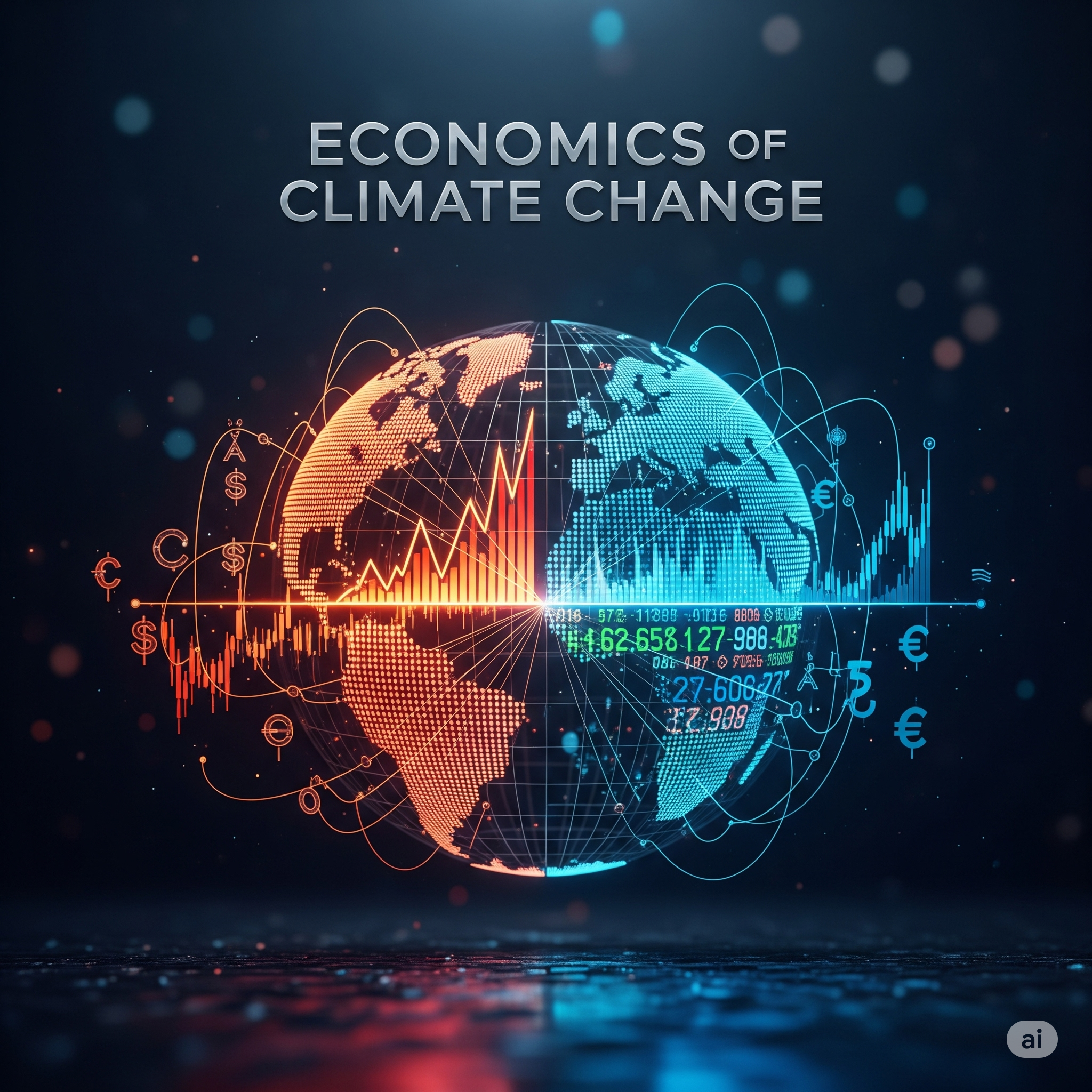Introduction
The global economy has become highly interconnected, with trade acting as a lifeline for both developed and developing nations. Free trade agreements, globalization, and liberalized markets have enabled countries to specialize in production, exchange goods, and benefit from comparative advantage. However, in recent years, tariff wars—commonly referred to as trade wars—have emerged as a major challenge to this interconnected system. A tariff war occurs when countries impose or increase tariffs on imports from trading partners, often as a retaliatory measure. While such conflicts directly involve powerful economies like the United States, China, or the European Union, the ripple effects are felt worldwide, particularly in emerging economies that rely heavily on trade, foreign investment, and export-led growth.
This article examines the impact of tariff wars on emerging economies, highlighting the historical context, causes, and far-reaching consequences. It also provides real-world case studies and explores strategies that emerging markets can adopt to cope with these global economic disruptions.
Understanding Tariff Wars
What are Tariffs?
Tariffs are taxes imposed by governments on imported goods and services. Their primary objectives include:
- Protecting domestic industries from foreign competition.
- Generating government revenue.
- Correcting trade imbalances.
For example, if Country A imposes a 25% tariff on steel imported from Country B, the cost of that steel rises, making domestically produced steel more competitive in Country A’s market.
What is a Tariff War?
A tariff war (or trade war) begins when one country imposes tariffs on another, prompting retaliation. This cycle escalates tensions, reduces trade volumes, and disrupts global supply chains. Unlike traditional military wars, tariff wars are fought using economic tools, but their impact can be equally devastating, especially for economies dependent on global trade.
Historical Context of Tariff Wars
Tariff wars are not new. In fact, they have shaped the global economy for centuries:
- The Smoot-Hawley Tariff Act (1930): The United States raised tariffs on thousands of imports, leading to retaliation from other countries. This deepened the Great Depression by reducing global trade by more than 60%.
- US–Japan Trade Disputes (1980s): The United States imposed tariffs on Japanese cars and electronics, aiming to protect domestic industries.
- US–China Tariff War (2018–2020): One of the largest trade disputes in recent history, where the US imposed tariffs on Chinese goods worth hundreds of billions of dollars. China retaliated, and this clash disrupted global markets.
These historical lessons indicate that while major powers initiate tariff wars, their effects ripple across all economies, including emerging markets.
Why Do Tariff Wars Happen?
Several economic and political factors contribute to tariff wars:
- Protectionism: Countries aim to safeguard domestic industries from foreign competition.
- Trade Deficits: Nations with large trade deficits often impose tariffs to reduce imports.
- Geopolitical Rivalries: Tariffs may be used as tools of political leverage.
- National Security Concerns: Tariffs on strategic industries (e.g., steel, semiconductors) are justified on security grounds.
- Domestic Politics: Leaders may use tariffs to appeal to domestic voters, especially in industries affected by globalization.
Impact of Tariff Wars on Global Trade
Before focusing on emerging economies, it is important to understand how tariff wars alter global trade:
- Disruption of Supply Chains: Global supply chains depend on cross-border trade. Tariffs increase costs and reduce efficiency.
- Decline in Global Trade Volumes: According to WTO data, trade wars can reduce global trade growth by 1–2 percentage points annually.
- Shift in Trade Alliances: Countries affected by tariffs seek new partners, reshaping global alliances.
- Increased Uncertainty: Investors and businesses hesitate to commit to long-term projects.
How Tariff Wars Affect Emerging Economies
Emerging economies such as India, Brazil, South Africa, and Southeast Asian nations are particularly vulnerable. Their dependence on global markets means tariff wars can hit them harder than developed economies.
1. Export Challenges
Emerging economies often depend on exports for growth. Tariff wars reduce demand for their products when major economies impose tariffs. For instance:
- A US–China trade war may lower demand for raw materials like rubber, copper, or oil from countries in Africa or Latin America.
- India’s textile and IT exports face risks if developed nations impose higher tariffs.
2. Import-Related Inflation
Emerging economies import machinery, technology, and raw materials. Tariffs increase these costs, leading to imported inflation, where the prices of goods rise domestically.
3. Decline in Foreign Direct Investment (FDI)
Uncertainty from tariff wars discourages multinational companies from investing in emerging markets. Investors seek stable environments, and prolonged disputes shift investments elsewhere.
4. Job Losses
Manufacturing and export-oriented industries in emerging economies employ millions. Decline in exports leads to job cuts, particularly in labor-intensive sectors like textiles, automobiles, and electronics assembly.
5. Currency Volatility
Trade wars often create uncertainty in global financial markets. Investors pull money out of emerging markets, weakening local currencies. A weaker currency makes imports more expensive, worsening inflation.
6. Slowdown in GDP Growth
Since trade contributes significantly to emerging economies’ GDP, tariff wars can cut growth by reducing exports, investment, and consumption simultaneously.
7. Rising Inequality
Tariff wars disproportionately affect small businesses and low-income workers in emerging economies, while large corporations often have more resources to adapt.
Case Studies of Emerging Economies Affected
1. India
During the US–China trade war (2018–2020), India initially benefited as some companies looked to diversify supply chains. However, India also faced challenges:
- Exporters struggled with declining demand from global markets.
- Agricultural products like rice and spices faced tariffs in some markets.
- Rising oil prices (linked to trade tensions) affected India’s import bill.
2. Brazil
Brazil, a major exporter of soybeans, initially benefited when China imposed tariffs on US soybeans. Chinese imports from Brazil surged. However, this created overdependence on one market, making Brazil vulnerable when global demand fluctuated.
3. African Nations
Many African economies export raw materials like copper, cobalt, and oil. Tariff wars reduce industrial demand in developed nations, lowering commodity prices. As a result, African economies lose crucial revenue.
4. Southeast Asia (Vietnam, Malaysia, Indonesia)
These nations saw some gains as companies relocated factories from China to avoid tariffs. However, the benefits were uneven, and they still faced uncertainty in global demand.
Short-Term vs Long-Term Impact
Short-Term Effects
- Sharp decline in exports and imports.
- Immediate inflationary pressures.
- Currency depreciation and stock market volatility.
Long-Term Effects
- Slower industrial growth.
- Reduced competitiveness in global markets.
- Structural unemployment in trade-dependent industries.
- Potential shift of global trade away from emerging economies if they fail to adapt.
Strategies for Emerging Economies to Cope
- Diversification of Trade Partners
Relying heavily on one or two markets makes countries vulnerable. Diversifying trade partners spreads risk. - Boosting Regional Trade Agreements
Emerging economies can strengthen intra-regional trade, such as ASEAN, African Continental Free Trade Area (AfCFTA), or SAARC. - Enhancing Domestic Industries
Investing in technology, manufacturing, and innovation reduces dependence on imports. - Attracting Stable FDI
By improving governance, infrastructure, and ease of doing business, emerging economies can attract long-term investments less vulnerable to tariff wars. - Currency Management and Monetary Policy
Central banks can use interest rates and foreign reserves to stabilize currencies during volatility. - Social Safety Nets
Supporting vulnerable workers and industries ensures social stability during trade disruptions.
Future Outlook
Tariff wars are likely to remain a recurring feature of global trade, especially with the rise of economic nationalism. Emerging economies must prepare for:
- Greater competition between the US and China for economic influence.
- Digital and technology-related tariff disputes (e.g., over semiconductors, AI, and 5G).
- The need for green and sustainable trade policies as climate change becomes central to global governance.
Those economies that adapt quickly—by diversifying, investing in domestic capacity, and strengthening regional cooperation—will be better positioned to weather future trade conflicts.
Conclusion
Tariff wars, though primarily fought between global economic giants, have significant spillover effects on emerging economies. These nations face challenges such as declining exports, inflation, job losses, and reduced investment. While some may experience short-term gains, the overall impact is negative, especially in the long term. For emerging economies, the key lies in resilience and adaptability—through diversification of markets, strengthening domestic industries, and fostering regional cooperation. In an era of growing uncertainty, the ability to turn challenges into opportunities will determine which emerging economies thrive despite global tariff wars.




